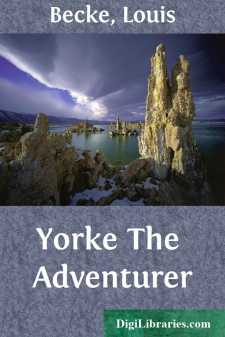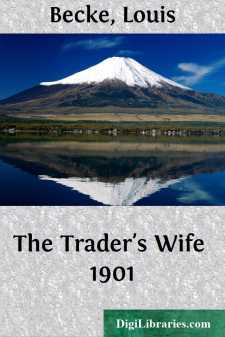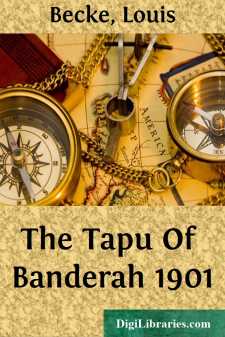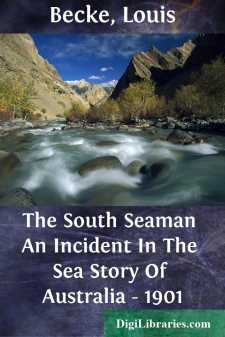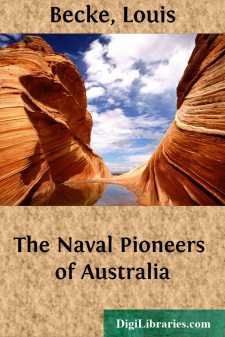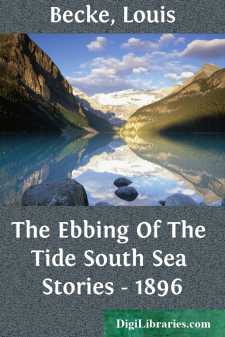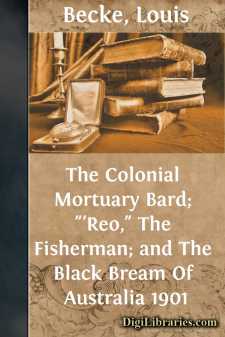Categories
- Antiques & Collectibles 13
- Architecture 36
- Art 48
- Bibles 22
- Biography & Autobiography 813
- Body, Mind & Spirit 142
- Business & Economics 28
- Children's Books 17
- Children's Fiction 14
- Computers 4
- Cooking 94
- Crafts & Hobbies 4
- Drama 346
- Education 46
- Family & Relationships 57
- Fiction 11829
- Games 19
- Gardening 17
- Health & Fitness 34
- History 1377
- House & Home 1
- Humor 147
- Juvenile Fiction 1873
- Juvenile Nonfiction 202
- Language Arts & Disciplines 88
- Law 16
- Literary Collections 686
- Literary Criticism 179
- Mathematics 13
- Medical 41
- Music 40
- Nature 179
- Non-Classifiable 1768
- Performing Arts 7
- Periodicals 1453
- Philosophy 64
- Photography 2
- Poetry 896
- Political Science 203
- Psychology 42
- Reference 154
- Religion 513
- Science 126
- Self-Help 84
- Social Science 81
- Sports & Recreation 34
- Study Aids 3
- Technology & Engineering 59
- Transportation 23
- Travel 463
- True Crime 29
Louis Becke
Louis Becke was an Australian writer known for his adventure stories set in the South Pacific. Born in 1855, he drew heavily on his own experiences as a trader, beachcomber, and government agent in the Pacific islands, which lent authenticity to his vivid tales. Becke's works, such as "By Reef and Palm" and "The Ebbing of the Tide," were popular in the late 19th and early 20th centuries, capturing the imaginations of readers with their exotic settings and adventurous plots.
Author's Books:
Sort by:
by:
Louis Becke
Chapter I In that delightful and exciting book, written by Captain Joshua Slocum, and entitled, "Sailing Alone Round the World," there is a part wherein the adventurous American seaman relates how he protected himself from night attacks by the savages by a simple, but efficient precaution. It was his custom, when he anchored for the night off the snow-clad and inhospitable shores of Tierra del...
more...
by:
Louis Becke
CHAPTER I "Hallo! young lady, what on earth are you doing here?" and Gerrard bent down over his horse's shoulder, and looked inquiringly into the face of a small and exceedingly ill-clad girl of about ten years of age. "Nothing, sir, I only came out for a walk, and to get some pippies." "And where do you get them?" "Down there, sir, on the sand," and the child...
more...
by:
Louis Becke
CHAPTER I Brabant's wife was sitting on the shady verandah of her house on the hills overlooking Levuka harbour, and watching a large fore and aft schooner being towed in by two boats, for the wind had died away early in the morning and left the smooth sea to swelter and steam under a sky of brass. The schooner was named the Maritana, and was owned and commanded by Mrs. Brabant's husband,...
more...
by:
Louis Becke
I ~ THE "STARLIGHT" As the rising sun had just begun to pierce the misty tropic haze of early dawn, a small, white-painted schooner of ninety or a hundred tons burden was bearing down upon the low, densely-wooded island of Mayou, which lies between the coast of south-east New Guinea and the murderous Solomon Group—the grave of the white man in Melanesia. The white population of Mayou was not...
more...
by:
Louis Becke
On the 22nd of July, 1828, the Sydney South Seaman, Indefatigable, eleven days out from the Port of Conception in Chili, was in lat 17? S. and about 127? E. long., six hundred miles distant from the nearest land—the then almost unknown Paumotu Group, which Cook had well named the Dangerous Archipelago. Five years before, the brig was named the Calder, and was then commanded by Captain Peter Dillon, a...
more...
by:
Louis Becke
CHAPTER I. INTRODUCTORY—THE EARLIEST AUSTRALIAN VOYAGERS: THE PORTUGUESE, SPANISH, AND DUTCH. Learned geographers have gone back to very remote times, even to the Middle Ages, and, by the aid of old maps, have set up ingenious theories showing that the Australian continent was then known to explorers. Some evidence has been adduced of a French voyage in which the continent was discovered in the youth...
more...
by:
Louis Becke
CHAPTER I On a certain island in the Paumotu Group, known on the charts as Chain Island, but called Anaa by the people themselves, lived a white man named Martin Flemming, one of those restless wanderers who range the Pacific in search of the fortune they always mean to gain, but which never comes to them, except in some few instances—so few that they might be counted on one's fingers. Two years...
more...
by:
Louis Becke
"LULIBAN OF THE POOL" A boy and a girl sat by the rocky margin of a deep mountain pool in Ponape in the North Pacific. The girl was weaving a basket from the leaves of a cocoa-nut. As she wove she sang the "Song of Luliban," and the boy listened intently. "'Tis a fine song that thou singest, Niya," said the boy, who came from Metalanien and was a stranger; "and who was...
more...
by:
Louis Becke
THE COLONIAL MORTUARY BARD A writer in the Sydney Evening News last year gave that journal some amusing extracts from the visitors' book at Longwood, St. Helena. If the extracts are authentic copies of the original entries, they deserve to be placed on the same high plane as the following, which appeared in a Melbourne newspaper some years ago:— "Our Emily was so fairThat the angels envied...
more...
by:
Louis Becke
CHAPTER I ~ PAUL, THE DIVER "Feeling any better to-day, Paul?" "Guess I'm getting round," and the big, bronzed-faced man raised his eyes to mine as he lay under the awning on the after deck of his pearling lugger. I sat down beside him and began to talk. A mile away the white beach of a little, land-locked bay shimmered under the morning sun, and the drooping fronds of the cocos...
more...


